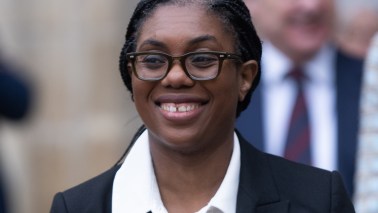‘The EU is united and acting fast,’ said Ursula von der Leyen, the president of the European Commission, as she condemned Russia’s invasion of Ukraine. A new package of sanctions, swiftly agreed upon by EU member states, appeared to show von der Leyen was right. Yet in reality, the measures were disappointing: a number of Russian officials had their assets frozen, but even Putin himself avoided punishment. Given the different attitudes and interests of EU members, from here on unity will be even more difficult to obtain. While the EU has vowed to ‘hurt Russia’, it seems unlikely it will agree upon how.
Vladimir Putin’s recognition of the Russian-backed Ukrainian regions of Donetsk and Luhansk as independent ‘People’s Republics’ has deeply shaken Europe. Many of the continent’s political leaders, particularly French President Emmanuel Macron and German Chancellor Olaf Scholz, had firmly believed in the possibility of finding a diplomatic solution. They hoped to appease Russia enough to withdraw the 150,000 troops it had stationed near the Ukrainian border. So

Get Britain's best politics newsletters
Register to get The Spectator's insight and opinion straight to your inbox. You can then read two free articles each week.
Already a subscriber? Log in







Comments
Join the debate for just £1 a month
Be part of the conversation with other Spectator readers by getting your first three months for £3.
UNLOCK ACCESS Just £1 a monthAlready a subscriber? Log in